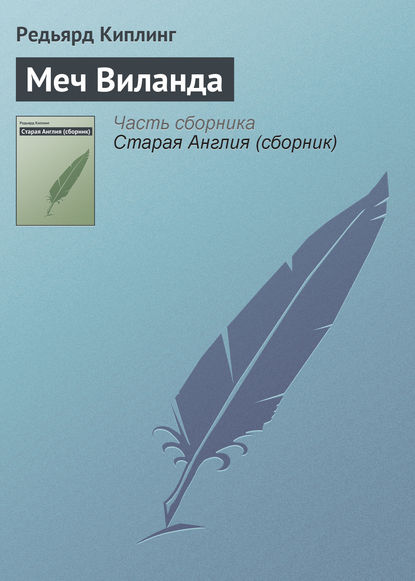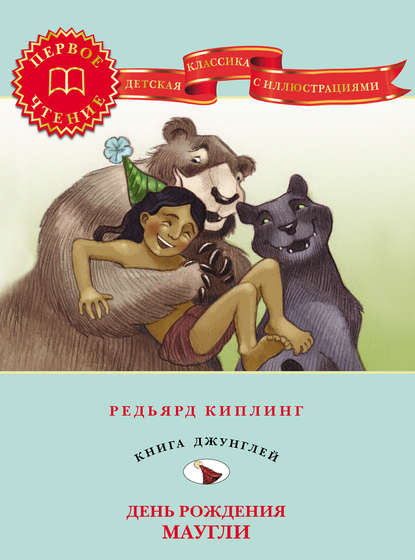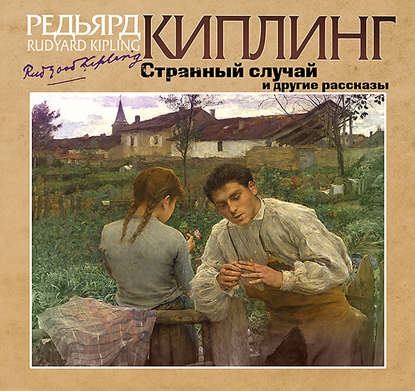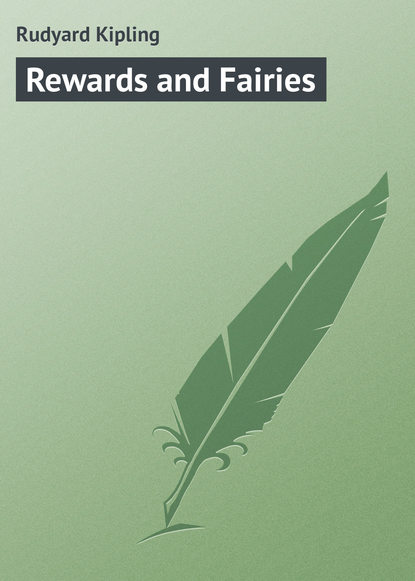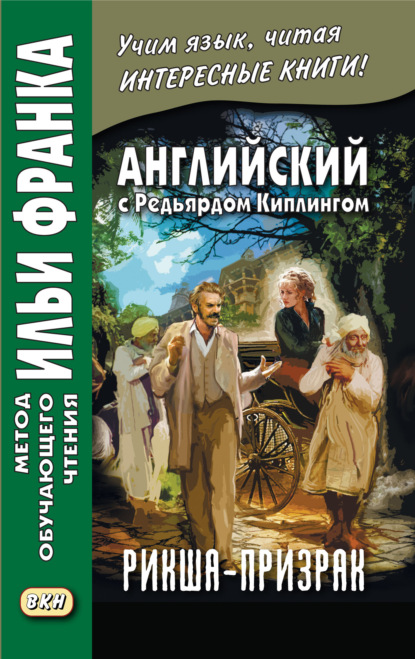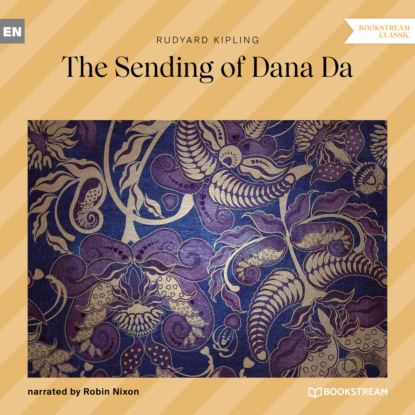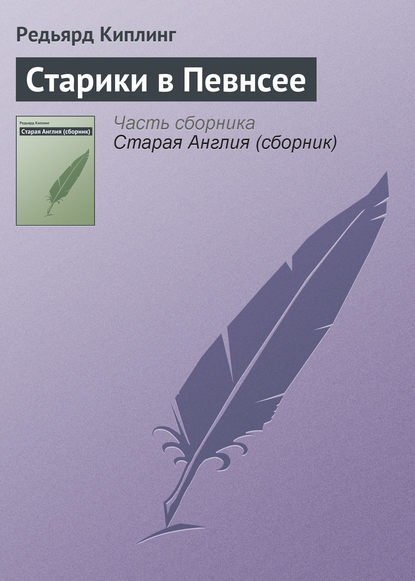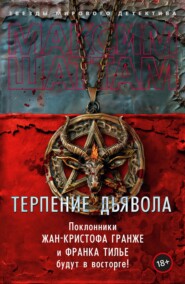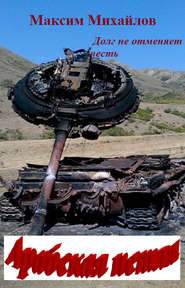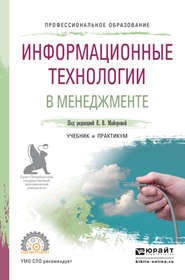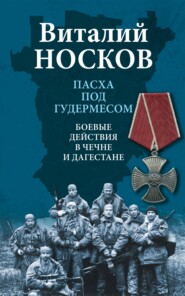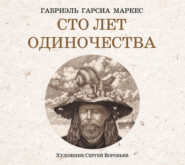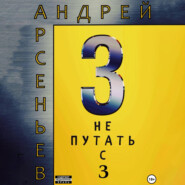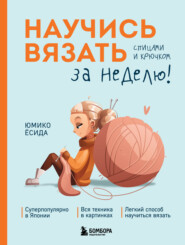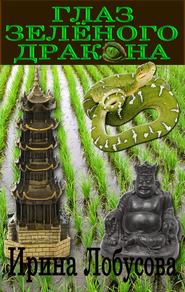 ТекстПолная версия
ТекстПолная версия Life's Handicap: Being Stories of Mine Own People
Полная версия
- О книге
- Читать
Rudyard Kipling
Life's Handicap: Being Stories of Mine Own People
PREFACE
In Northern India stood a monastery called The Chubara of Dhunni Bhagat. No one remembered who or what Dhunni Bhagat had been. He had lived his life, made a little money and spent it all, as every good Hindu should do, on a work of piety – the Chubara. That was full of brick cells, gaily painted with the figures of Gods and kings and elephants, where worn-out priests could sit and meditate on the latter end of things; the paths were brick paved, and the naked feet of thousands had worn them into gutters. Clumps of mangoes sprouted from between the bricks; great pipal trees overhung the well-windlass that whined all day; and hosts of parrots tore through the trees. Crows and squirrels were tame in that place, for they knew that never a priest would touch them.
The wandering mendicants, charm-sellers, and holy vagabonds for a hundred miles round used to make the Chubara their place of call and rest. Mahomedan, Sikh, and Hindu mixed equally under the trees. They were old men, and when man has come to the turnstiles of Night all the creeds in the world seem to him wonderfully alike and colourless.
Gobind the one-eyed told me this. He was a holy man who lived on an island in the middle of a river and fed the fishes with little bread pellets twice a day. In flood-time, when swollen corpses stranded themselves at the foot of the island, Gobind would cause them to be piously burned, for the sake of the honour of mankind, and having regard to his own account with God hereafter. But when two-thirds of the island was torn away in a spate, Gobind came across the river to Dhunni Bhagat’s Chubara, he and his brass drinking vessel with the well-cord round the neck, his short arm-rest crutch studded with brass nails, his roll of bedding, his big pipe, his umbrella, and his tall sugar-loaf hat with the nodding peacock feathers in it. He wrapped himself up in his patched quilt made of every colour and material in the world, sat down in a sunny corner of the very quiet Chubara, and, resting his arm on his short-handled crutch, waited for death. The people brought him food and little clumps of marigold flowers, and he gave his blessing in return. He was nearly blind, and his face was seamed and lined and wrinkled beyond belief, for he had lived in his time which was before the English came within five hundred miles of Dhunni Bhagat’s Chubara.
When we grew to know each other well, Gobind would tell me tales in a voice most like the rumbling of heavy guns over a wooden bridge. His tales were true, but not one in twenty could be printed in an English book, because the English do not think as natives do. They brood over matters that a native would dismiss till a fitting occasion; and what they would not think twice about a native will brood over till a fitting occasion: then native and English stare at each other hopelessly across great gulfs of miscomprehension.
‘And what,’ said Gobind one Sunday evening, ‘is your honoured craft, and by what manner of means earn you your daily bread?’
‘I am,’ said I, ‘a kerani – one who writes with a pen upon paper, not being in the service of the Government.’
‘Then what do you write?’ said Gobind. ‘Come nearer, for I cannot see your countenance, and the light fails.’
‘I write of all matters that lie within my understanding, and of many that do not. But chiefly I write of Life and Death, and men and women, and Love and Fate according to the measure of my ability, telling the tale through the mouths of one, two, or more people. Then by the favour of God the tales are sold and money accrues to me that I may keep alive.’
‘Even so,’ said Gobind. ‘That is the work of the bazar story-teller; but he speaks straight to men and women and does not write anything at all. Only when the tale has aroused expectation, and calamities are about to befall the virtuous, he stops suddenly and demands payment ere he continues the narration. Is it so in your craft, my son?’
‘I have heard of such things when a tale is of great length, and is sold as a cucumber, in small pieces.’
‘Ay, I was once a famed teller of stories when I was begging on the road between Koshin and Etra; before the last pilgrimage that ever I took to Orissa. I told many tales and heard many more at the rest-houses in the evening when we were merry at the end of the march. It is in my heart that grown men are but as little children in the matter of tales, and the oldest tale is the most beloved.’
‘With your people that is truth,’ said I. ‘But in regard to our people they desire new tales, and when all is written they rise up and declare that the tale were better told in such and such a manner, and doubt either the truth or the invention thereof.’
‘But what folly is theirs!’ said Gobind, throwing out his knotted hand. ‘A tale that is told is a true tale as long as the telling lasts. And of their talk upon it – you know how Bilas Khan, that was the prince of tale-tellers, said to one who mocked him in the great rest-house on the Jhelum road: “Go on, my brother, and finish that I have begun,” and he who mocked took up the tale, but having neither voice nor manner for the task came to a standstill, and the pilgrims at supper made him eat abuse and stick half that night.’
‘Nay, but with our people, money having passed, it is their right; as we should turn against a shoeseller in regard to shoes if those wore out. If ever I make a book you shall see and judge.’
‘And the parrot said to the falling tree, Wait, brother, till I fetch a prop!’ said Gobind with a grim chuckle. ‘God has given me eighty years, and it may be some over. I cannot look for more than day granted by day and as a favour at this tide. Be swift.’
‘In what manner is it best to set about the task.’ said I, ‘O chiefest of those who string pearls with their tongue?’
‘How do I know? Yet’ – he thought for a little – ‘how should I not know? God has made very many heads, but there is only one heart in all the world among your people or my people. They are children in the matter of tales.’
‘But none are so terrible as the little ones, if a man misplace a word, or in a second telling vary events by so much as one small devil.’
‘Ay, I also have told tales to the little ones, but do thou this – ’ His old eyes fell on the gaudy paintings of the wall, the blue and red dome, and the flames of the poinsettias beyond. ‘Tell them first of those things that thou hast seen and they have seen together. Thus their knowledge will piece out thy imperfections. Tell them of what thou alone hast seen, then what thou hast heard, and since they be children tell them of battles and kings, horses, devils, elephants, and angels, but omit not to tell them of love and suchlike. All the earth is full of tales to him who listens and does not drive away the poor from his door. The poor are the best of tale-tellers; for they must lay their ear to the ground every night.’
After this conversation the idea grew in my head, and Gobind was pressing in his inquiries as to the health of the book.
Later, when we had been parted for months, it happened that I was to go away and far off, and I came to bid Gobind good-bye.
‘It is farewell between us now, for I go a very long journey,’ I said.
‘And I also. A longer one than thou. But what of the book?’ said he.
‘It will be born in due season if it is so ordained.’
‘I would I could see it,’ said the old man, huddling beneath his quilt. ‘But that will not be. I die three days hence, in the night, a little before the dawn. The term of my years is accomplished.’
In nine cases out of ten a native makes no miscalculation as to the day of his death. He has the foreknowledge of the beasts in this respect.
‘Then thou wilt depart in peace, and it is good talk, for thou hast said that life is no delight to thee.’
‘But it is a pity that our book is not born. How shall I know that there is any record of my name?’
‘Because I promise, in the forepart of the book, preceding everything else, that it shall be written, Gobind, sadhu, of the island in the river and awaiting God in Dhunni Bhagat’s Chubara, first spoke of the book,’ said I.
‘And gave counsel – an old man’s counsel. Gobind, son of Gobind of the Chumi village in the Karaon tehsil, in the district of Mooltan. Will that be written also?’
‘That will be written also.’
‘And the book will go across the Black Water to the houses of your people, and all the Sahibs will know of me who am eighty years old?’
‘All who read the book shall know. I cannot promise for the rest.’
‘That is good talk. Call aloud to all who are in the monastery, and I will tell them this thing.’
They trooped up, faquirs, sadhus, sunnyasis, byragis, nihangs, and mullahs, priests of all faiths and every degree of raggedness, and Gobind, leaning upon his crutch, spoke so that they were visibly filled with envy, and a white-haired senior bade Gobind think of his latter end instead of transitory repute in the mouths of strangers. Then Gobind gave me his blessing and I came away.
These tales have been collected from all places, and all sorts of people, from priests in the Chubara, from Ala Yar the carver, Jiwun Singh the carpenter, nameless men on steamers and trains round the world, women spinning outside their cottages in the twilight, officers and gentlemen now dead and buried, and a few, but these are the very best, my father gave me. The greater part of them have been published in magazines and newspapers, to whose editors I am indebted; but some are new on this side of the water, and some have not seen the light before.
The most remarkable stories are, of course, those which do not appear – for obvious reasons.
THE LANG MEN O’ LARUT
The Chief Engineer’s sleeping suit was of yellow striped with blue, and his speech was the speech of Aberdeen. They sluiced the deck under him, and he hopped on to the ornamental capstan, a black pipe between his teeth, though the hour was not seven of the morn.
‘Did you ever hear o’ the Lang Men o’ Larut?’ he asked when the Man from Orizava had finished a story of an aboriginal giant discovered in the wilds of Brazil. There was never story yet passed the lips of teller, but the Man from Orizava could cap it.
‘No, we never did,’ we responded with one voice. The Man from Orizava watched the Chief keenly, as a possible rival.
‘I’m not telling the story for the sake of talking merely,’ said the Chief, ‘but as a warning against betting, unless you bet on a perrfect certainty. The Lang Men o’ Larut were just a certainty. I have had talk wi’ them. Now Larut, you will understand, is a dependency, or it may be an outlying possession, o’ the island o’ Penang, and there they will get you tin and manganese, an’ it mayhap mica, and all manner o’ meenerals. Larut is a great place.’
‘But what about the population?’ said the Man from Orizava.
‘The population,’ said the Chief slowly, ‘were few but enorrmous. You must understand that, exceptin’ the tin-mines, there is no special inducement to Europeans to reside in Larut. The climate is warm and remarkably like the climate o’ Calcutta; and in regard to Calcutta, it cannot have escaped your obsairvation that – ’
‘Calcutta isn’t Larut; and we’ve only just come from it,’ protested the Man from Orizava. ‘There’s a meteorological department in Calcutta, too.’
‘Ay, but there’s no meteorological department in Larut. Each man is a law to himself. Some drink whisky, and some drink brandipanee, and some drink cocktails – vara bad for the coats o’ the stomach is a cocktail – and some drink sangaree, so I have been credibly informed; but one and all they sweat like the packing of piston-head on a fourrteen-days’ voyage with the screw racing half her time. But, as I was saying, the population o’ Larut was five all told of English – that is to say, Scotch – an’ I’m Scotch, ye know,’ said the Chief.
The Man from Orizava lit another cigarette, and waited patiently. It was hopeless to hurry the Chief Engineer.
‘I am not pretending to account for the population o’ Larut being laid down according to such fabulous dimensions. O’ the five white men engaged upon the extraction o’ tin ore and mercantile pursuits, there were three o’ the sons o’ Anak. Wait while I remember. Lammitter was the first by two inches – a giant in the land, an’ a terreefic man to cross in his ways. From heel to head he was six feet nine inches, and proportionately built across and through the thickness of his body. Six good feet nine inches – an overbearin’ man. Next to him, and I have forgotten his precise business, was Sandy Vowle. And he was six feet seven, but lean and lathy, and it was more in the elasteecity of his neck that the height lay than in any honesty o’ bone and sinew. Five feet and a few odd inches may have been his real height. The remainder came out when he held up his head, and six feet seven he was upon the door-sills. I took his measure in chalk standin’ on a chair. And next to him, but a proportionately made man, ruddy and of a fair countenance, was Jock Coan – that they called the Fir Cone. He was but six feet five, and a child beside Lammitter and Vowle. When the three walked out together, they made a scunner run through the colony o’ Larut. The Malays ran round them as though they had been the giant trees in the Yosemite Valley – these three Lang Men o’ Larut. It was perfectly ridiculous – a lusus naturae – that one little place should have contained maybe the three tallest ordinar’ men upon the face o’ the earth.
‘Obsairve now the order o’ things. For it led to the finest big drink in Larut, and six sore heads the morn that endured for a week. I am against immoderate liquor, but the event to follow was a justification. You must understand that many coasting steamers call at Larut wi’ strangers o’ the mercantile profession. In the spring time, when the young cocoanuts were ripening, and the trees o’ the forests were putting forth their leaves, there came an American man to Larut, and he was six foot three, or it may have been four, in his stockings. He came on business from Sacramento, but he stayed for pleasure wi’ the Lang Men o’ Larut. Less than, a half o’ the population were ordinar’ in their girth and stature, ye will understand – Howson and Nailor, merchants, five feet nine or thereabouts. He had business with those two, and he stood above them from the six feet threedom o’ his height till they went to drink. In the course o’ conversation he said, as tall men will, things about his height, and the trouble of it to him. That was his pride o’ the flesh.
‘“As the longest man in the island – ” he said, but there they took him up and asked if he were sure.
‘“I say I am the longest man in the island,” he said, “and on that I’ll bet my substance.”
‘They laid down the bed-plates of a big drink then and there, and put it aside while they called Jock Coan from his house, near by among the fireflies’ winking.
‘“How’s a’ wi’ you?” said Jock, and came in by the side o’ the Sacramento profligate, two inches, or it may have been one, taller than he.
‘“You’re long,” said the man, opening his eyes. “But I am longer.” An’ they sent a whistle through the night an’ howkit out Sandy Vowle from his bit bungalow, and he came in an’ stood by the side o’ Jock, an’ the pair just fillit the room to the ceiling-cloth.
‘The Sacramento man was a euchre-player and a most profane sweerer. “You hold both Bowers,” he said, “but the Joker is with me.”
‘“Fair an’ softly,” says Nailor. “Jock, whaur’s Lang Lammitter?”
‘“Here,” says that man, putting his leg through the window and coming in like an anaconda o’ the desert furlong by furlong, one foot in Penang and one in Batavia, and a hand in North Borneo it may be.
‘“Are you suited?” said Nailor, when the hinder end o’ Lang Lammitter was slidden through the sill an’ the head of Lammitter was lost in the smoke away above.
‘The American man took out his card and put it on the table. “Esdras B. Longer is my name, America is my nation, ‘Frisco is my resting-place, but this here beats Creation,” said he. “Boys, giants – side-show giants – I minded to slide out of my bet if I had been overtopped, on the strength of the riddle on this paste-board. I would have done it if you had topped me even by three inches, but when it comes to feet – yards – miles, I am not the man to shirk the biggest drink that ever made the travellers’-joy palm blush with virginal indignation, or the orang-outang and the perambulating dyak howl with envy. Set them up and continue till the final conclusion.”
‘O mon, I tell you ‘twas an awful sight to see those four giants threshing about the house and the island, and tearin’ down the pillars thereof an’ throwing palm-trees broadcast, and currling their long legs round the hills o’ Larut. An awfu’ sight! I was there. I did not mean to tell you, but it’s out now. I was not overcome, for I e’en sat me down under the pieces o’ the table at four the morn an’ meditated upon the strangeness of things.
‘Losh, yon’s the breakfast-bell!’
REINGELDER AND THE GERMAN FLAG
Hans Breitmann paddled across the deck in his pink pyjamas, a cup of tea in one hand and a cheroot in the other, when the steamer was sweltering down the coast on her way to Singapur. He drank beer all day and all night, and played a game called ‘Scairt’ with three compatriots.
‘I haf washed,’ said he in a voice of thunder, ‘but dere is no use washing on these hell-seas. Look at me – I am still all wet and schweatin’. It is der tea dot makes me so. Boy, bring me Bilsener on ice.’
‘You will die if you drink beer before breakfast,’ said one man. ‘Beer is the worst thing in the world for – ’
‘Ya, I know – der liver. I haf no liver, und I shall not die. At least I will not die obon dese benny sdeamers dot haf no beer fit to trink. If I should haf died, I will haf don so a hoondert dimes before now – in Shermany, in New York, in Japon, in Assam, und all over der inside bans of South Amerique. Also in Shamaica should I hat died or in Siam, but I am here; und der are my orchits dot I have drafelled all the vorld round to find.’
He pointed towards the wheel, where, in two rough wooden boxes, lay a mass of shrivelled vegetation, supposed by all the ship to represent Assam orchids of fabulous value.
Now, orchids do not grow in the main streets of towns, and Hans Breitmann had gone far to get his. There was nothing that he had not collected that year, from king-crabs to white kangaroos.
‘Lisden now,’ said he, after he had been speaking for not much more than ten minutes without a pause; ‘Lisden und I will dell you a sdory to show how bad und worse it is to go gollectin’ und belief vot anoder fool haf said. Dis was in Uraguay which was in Amerique – North or Sout’ you would not know – und I was hoontin’ orchits und aferydings else dot I could back in my kanasters – dot is drafelling sbecimen-gaces. Dere vas den mit me anoder man – Reingelder, dot vas his name – und he vas hoontin’ also but only coral-snakes – joost Uraguay coral-snakes – aferykind you could imagine. I dell you a coral-snake is a peauty – all red und white like coral dot has been gestrung in bands upon der neck of a girl. Dere is one snake howefer dot we who gollect know ash der Sherman Flag, pecause id is red und plack und white, joost like a sausage mit druffles. Reingelder he was naturalist – goot man – goot trinker – better as me! “By Gott,” said Reingelder, “I will get a Sherman Flag snake or I will die.” Und we toorned all Uraguay upside-behint all pecause of dot Sherman Flag.
‘Von day when we was in none knows where – shwingin’ in our hummocks among der woods, oop comes a natif woman mit a Sherman Flag in a bickle-bottle – my bickle-bottle – und we both fell from our hummocks flat ubon our pot – what you call stomach – mit shoy at dis thing. Now I was gollectin’ orchits also, und I knowed dot der idee of life to Reingelder vas dis Sherman Flag. Derefore I bicked myselfs oop und I said, “Reingelder, dot is YOUR find.” – “Heart’s true friend, dou art a goot man,” said Reingelder, und mit dot he obens der bickle-bottle, und der natif woman she shqueals: “Herr Gott! It will bite.” I said – pecause in Uraguay a man must be careful of der insects – “Reingelder, shpifligate her in der alcohol und den she will be all right.” – “Nein,” said Reingelder, “I will der shnake alife examine. Dere is no fear. Der coral-shnakes are mitout shting-apparatus brofided.” Boot I looked at her het, und she vas der het of a boison-shnake – der true viper cranium, narrow und contract. “It is not goot,” said I, “she may bite und den – we are tree hoondert mile from aferywheres. Broduce der alcohol und bickle him alife.” Reingelder he had him in his hand – grawlin’ und grawlin’ as slow as a woorm und dwice as guiet. “Nonsense,” says Reingelder. “Yates haf said dot not von of der coral-shnakes haf der sack of boison.” Yates vas der crate authorite ubon der reptilia of Sout’ Amerique. He haf written a book. You do not know, of course, but he vas a crate authorite.
‘I gum my eye upon der Sherman Flag, grawlin’ und grawlin’ in Reingelder’s fist, und der het vas not der het of innocence. “Mein Gott,” I said. “It is you dot will get der sack – der sack from dis life here pelow!”
‘“Den you may haf der shnake,” says Reingelder, pattin’ it ubon her het. “See now, I will show you vat Yates haf written!”
‘Uud mit dot he went indo his dent, unt brung out his big book of Yates; der Sherman Flag grawlin’ in his fist. “Yates haf said,” said Reingelder, und he throwed oben der book in der fork of his fist und read der passage, proofin’ conglusivement dot nefer coral-shnake bite vas boison. Den he shut der book mit a bang, und dot shqueeze der Sherman Flag, und she nip once und dwice.
‘“Der liddle fool he haf bit me,” says Reingelder.
‘Dese things was before we know apout der permanganat-potash injection. I was discomfordable.
‘“Die oop der arm, Reingelder,” said I, “und trink whisky ontil you can no more trink.”
‘“Trink ten tousand tevils! I will go to dinner,” said Reingelder, und he put her afay und it vas very red mit emotion.
‘We lifed upon soup, horse-flesh, und beans for dinner, but before we vas eaten der soup, Reingelder he haf hold of his arm und cry, “It is genumben to der clavicle. I am a dead man; und Yates he haf lied in brint!”
‘I dell you it vas most sad, for der symbtoms dot came vas all dose of strychnine. He vas doubled into big knots, und den undoubled, und den redoubled mooch worse dan pefore, und he frothed. I vas mit him, saying, “Reingelder, dost dou know me?” but he himself, der inward gonsciousness part, was peyond knowledge, und so I know he vas not in bain. Den he wrop himself oop in von dremendous knot und den he died – all alone mit me in Uraguay. I was sorry, for I lofed Reingelder, und I puried him, und den I took der coral-shnake – dot Sherman Flag – so bad und dreacherous und I bickled him alife.
‘So I got him: und so I lost Reingelder.’
THE WANDERING JEW
‘If you go once round the world in an easterly direction, you gain one day,’ said the men of science to John Hay. In after years John Hay went east, west, north, and south, transacted business, made love, and begat a family, as have done many men, and the scientific information above recorded lay neglected in the deeps of his mind with a thousand other matters of equal importance.
When a rich relative died, he found himself wealthy beyond any reasonable expectation that he had entertained in his previous career, which had been a chequered and evil one. Indeed, long before the legacy came to him, there existed in the brain of John Hay a little cloud-a momentary obscuration of thought that came and went almost before he could realize that there was any solution of continuity. So do the bats flit round the eaves of a house to show that the darkness is falling. He entered upon great possessions, in money, land, and houses; but behind his delight stood a ghost that cried out that his enjoyment of these things should not be of long duration. It was the ghost of the rich relative, who had been permitted to return to earth to torture his nephew into the grave. Wherefore, under the spur of this constant reminder, John Hay, always preserving the air of heavy business-like stolidity that hid the shadow on his mind, turned investments, houses, and lands into sovereigns – rich, round, red, English sovereigns, each one worth twenty shillings. Lands may become valueless, and houses fly heavenward on the wings of red flame, but till the Day of Judgment a sovereign will always be a sovereign – that is to say, a king of pleasures.





